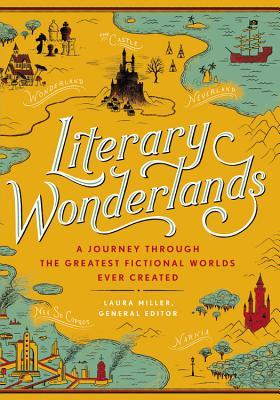
Part of Series
The anticipated follow-up to the book lovers' favorite, Literary Wonderlands, Literary Landscapes delves deep into the geography, location, and terrain of our best-loved literary works and looks at how setting and environmental attributes influence storytelling, character, and our emotional response as readers. Fully illustrated with hundreds of full-color images throughout. Some stories couldn't happen just anywhere. As is the case with all great literature, the setting, scenery, and landscape are as central to the tale as any character, and just as easily recognized. Literary Landscapes brings together more than 50 literary worlds and examines how their description is intrinsic to the stories that unfold within their borders. Follow Leopold Bloom's footsteps around Dublin. Hear the music of the Mississippi River steamboats that set the score for Huckleberry Finn. Experience the rugged bleakness of New Foundland in Annie Proulx's The Shipping News or the soft Neapolitan breezes in My Brilliant Friend. The landscapes of enduring fictional characters and literary legends are vividly brought to life, evoking all the sights and sounds of the original works. Literary Landscapes will transport you to the fictions greatest lands and allow you to connect to the story and the author's intent in a whole new way.
Author

John Andrew Sutherland is an English lecturer, emeritus professor, newspaper columnist and author. Now Emeritus Lord Northcliffe Professor of Modern English Literature at University College London, John Sutherland began his academic career after graduating from the University of Leicester as an assistant lecturer in Edinburgh in 1964. He specialises in Victorian fiction, 20th century literature, and the history of publishing. Apart from writing a regular column in the The Guardian newspaper, Sutherland has published seventeen (as of 2004) books and is editing the forthcoming Oxford Companion to Popular Fiction. The series of books which starts with Was Heathcliff a Murderer? has brought him a wide readership. The books in the series are collections of essays. Each essay takes a piece of classic fiction, almost always from the Victorian period. Carefully going over every word of the text, Sutherland highlights apparent inconsistencies, anachronisms and oversights, and explains references which the modern reader is likely to overlook. In some cases he demonstrates the likelihood that the author simply forgot a minor detail. In others, apparent slips on the part of the author are presented as evidence that something is going on beyond the surface of the book which is not explicitly described (such as his explanation for why Sherlock Holmes should mis-address Miss Stoner as Miss Roylott in "The Adventure of the Speckled Band"). In 2001, he published Last Drink to LA, a moving chronicle of his alcoholism and his return to sobriety. In 2005, he was involved in Dot Mobile's project to translate summaries and quotes of classic literature into text messaging shorthand. In the same year he was also Chair of Judges for the Booker Prize. In June 2007 he published an autobiography: The Boy Who Loved Books: A Memoir. On 18 December 2007 his annotated edition of Robert Louis Stevenson's The Black Arrow was released by Penguin Books.
